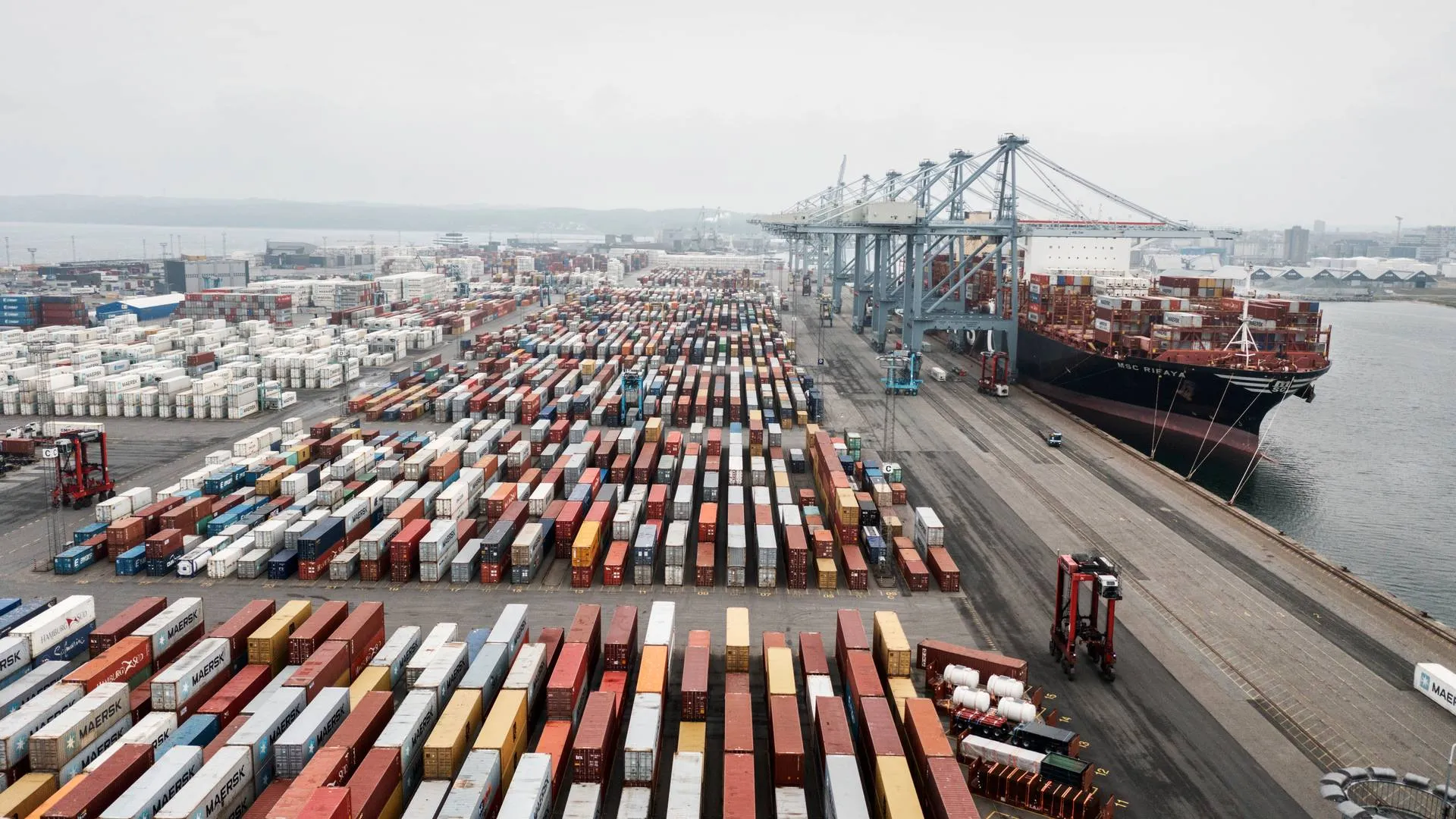President Donald Trump’s move to impose sweeping tariffs on U.S. imports sparked threats of retaliation on Thursday, as companies and governments rushed to count the costs from an escalating trade war that threatens to shake up global alliances.
The penalties announced on Wednesday unleashed turbulence across world markets and drew condemnation from other leaders facing the end of an era of trade liberalization that has shaped the global order for decades.
Trump said he would impose a 10% baseline tariff on all imports to the United States and higher duties on some of the country’s biggest trading partners, hammering goods from premium Italian coffee and Japanese whisky to sportswear made in Asia.
Facing 54% tariffs on exports to the U.S., the world’s No. 2 economy China vowed countermeasures, as did the European Union, as Washington’s allies and rivals alike criticised moves they fear will deal a devastating blow to global trade.
“Uncertainty will spiral and trigger the rise of further protectionism. The consequences will be dire for millions of people around the globe,” EU chief Ursula von der Leyen said, adding the 27-member bloc was preparing to hit back if talks with Washington failed.
Global stocks tumbled and investors sought safe-haven bonds and gold. According to Fitch Ratings, the new U.S. tariffs are the highest in more than a century.
Barclays and BofA Global Research warned the U.S. economy faced a higher risk of slipping into recession, while Germany’s IW research institute estimated the tariffs would wipe 750 billion euros ($833.63 billion) from the EU economy.
Trump said the “reciprocal” tariffs were a response to duties and other non-tariff barriers put on U.S. goods. He argued that the new levies will boost manufacturing jobs at home.
Vice President JD Vance on Thursday said he knows Americans are worried about costs in the face of what he noted was “a big change” with tariffs, and cautioned that it would take time to see lower prices or more U.S. jobs and manufacturing.
“We know a lot of Americans are worried,” he told Fox News. “What I’d ask folks to appreciate here is that we are not going to fix things overnight.”
The Trump administration was talking to all major trading partners about ways to bring down the new tariffs, Commerce Secretary Howard Lutnick said, stressing that countries needed to treat the U.S. fairly.
Trump also weighed in on his Truth Social media platform:
“THE OPERATION IS OVER! THE PATIENT LIVED, AND IS HEALING.”
TINY TERRITORIES, UNINHABITED ISLANDS HIT
Among close U.S. allies, the EU was targeted with a 20% rate, Japan with 24%, South Korea with 25% and Taiwan with 32%. Even some tiny territories and uninhabited islands in the Antarctic were hit by tariffs.
Trump’s measures looked set to shake up established trade ties in favour of new relationships.
“Opportunities for new alliances are emerging that we should use determinedly and decisively,” said Robert Habeck, the economy minister of Germany, citing Canada and Mexico as examples.
“Donald Trump buckles under pressure, corrects his announcements under pressure, but the logical consequence is that he must also feel the pressure, and this pressure must now be exerted from Germany, from Europe.”
Trump’s tariffs come at a time when relations with much of Europe have plummeted over issues such as the war in Ukraine and the upending of transatlantic ties, under which the U.S. has acted as the ultimate guarantor of European security.
The issue spilled over into a meeting of the NATO alliance in Brussels on Thursday, where countries questioned the logic of imposing destructive tariffs just as the U.S. was pushing for them to sharply raise their defence spending.
Economists have warned that tariffs could slow the global economy and increase living costs for the average American family by thousands of dollars.
“If the tariffs stay in place, we think they would add 1-1.5 percentage points to inflation in the near term and subtract a similar amount from GDP, pushing the economy to the precipice of recession,” BofA economists led by Claudio Irigoyen said.
Canada and Mexico, the two largest U.S. trading partners, already face 25% tariffs on many goods and will not face additional levies from Wednesday’s announcement.
They will be hit by a separate set of tariffs on auto imports that will take effect on Thursday.
Spain unveiled a 14.1-billion-euro plan to soften the impact for its economy.
Some of the highest increases fell on Africa, where many of the hardest-hit countries are already struggling with poverty and debt, as well as other severe challenges such as one of the world’s highest rates of /AIDS infections in Lesotho.
This map shows the percentage of reciprocal tariffs imposed by the U.S. administration on each economy.
Now as the reality of the new tariffs sinks in, companies around the world must weigh up how to adjust, with their options limited and unpalatable for their customers.
“It’s an immense difficulty for Europe. I think it’s also a catastrophe for the United States and for U.S. citizens,” said French Prime Minister François Bayrou.
Source: Reuters






